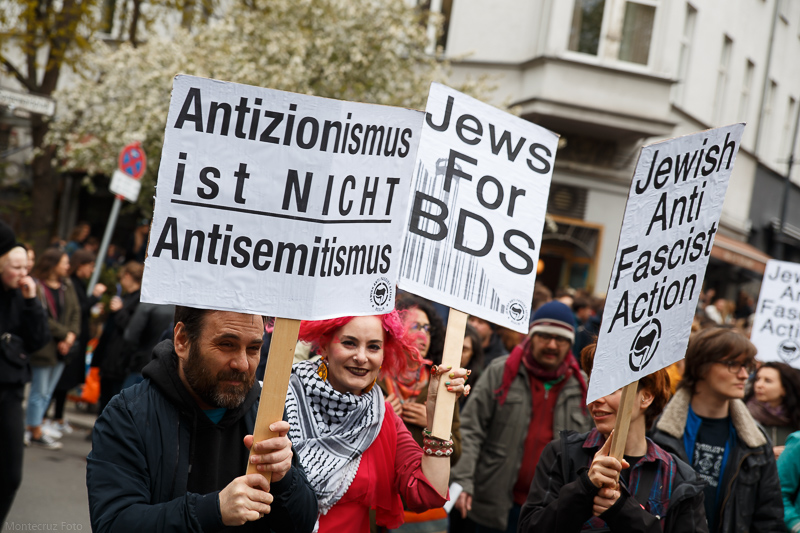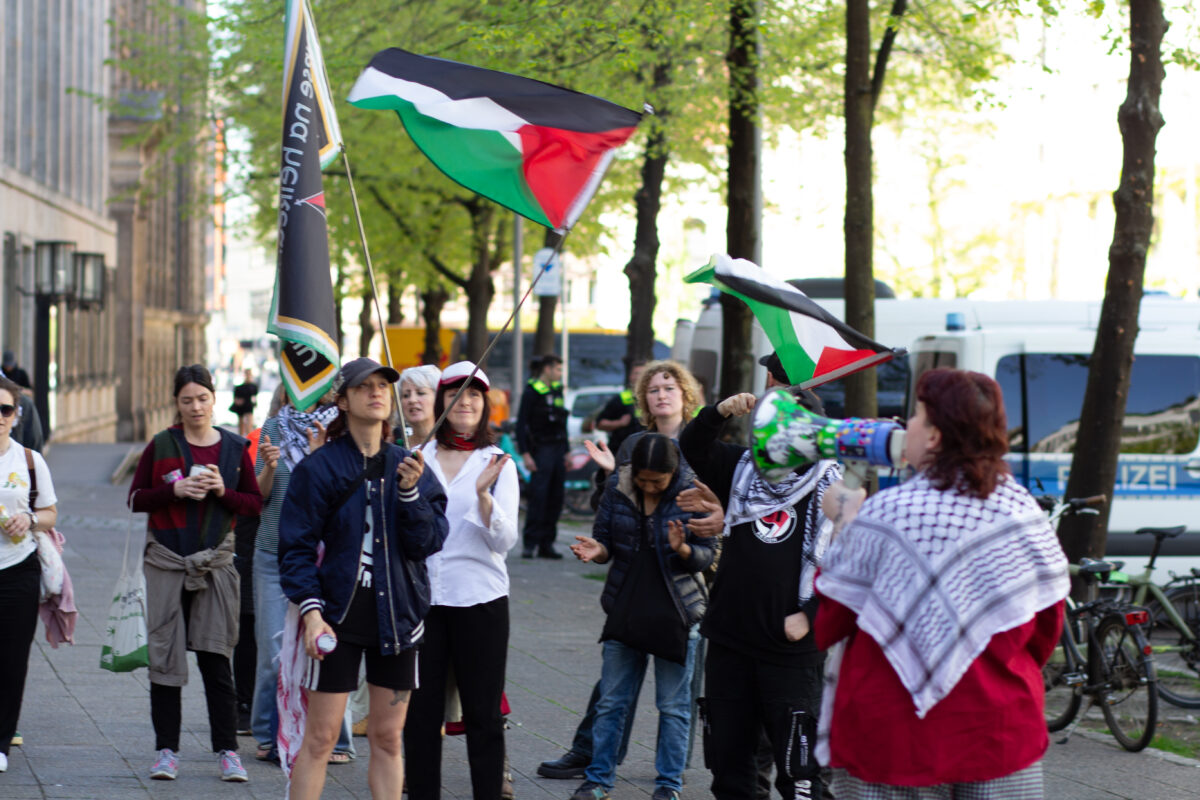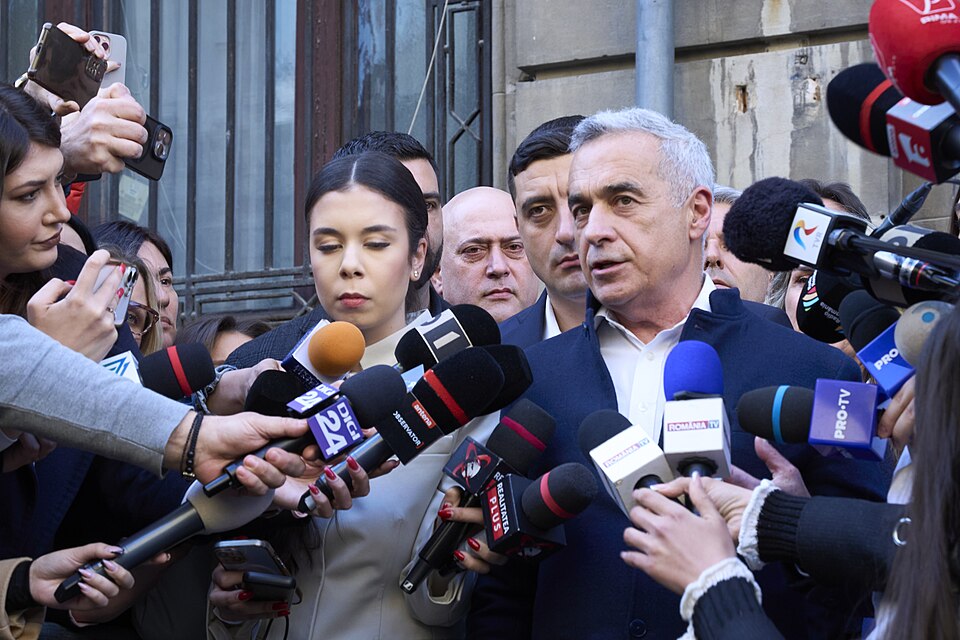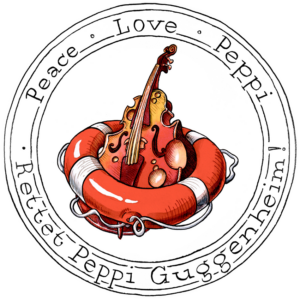On Monday, up to 1,000 artists and cultural workers protested in front of the Berlin parliament. The city’s cultural senator, Joe Chialo of the conservative CDU, has declared that in order to get public funding artists and cultural institutions will need to sign a loyalty oath for the State of Israel, as well as distance themselves from “extremism” and support Israel’s “right to exist.” Chialo believes that the German capital’s cultural scene is full of “hidden antisemitism.” His first action to stop “hidden antisemitism” was shutting down the cultural center Oyoun — they had dared to provide space for an event by the Jewish anti-war group Jüdische Stimme.
This is a disturbing redefinition of the term “antisemitism.” Historically, it has referred to hatred against Jews. According to the German government, however, now any critic of Israel is guilty of antisemitism — just as any supporter of Israel can be a victim of it. This regularly leads to the same bizarre situation: a German politician accusing a Jew of antisemitism.
I first witnessed this seven years ago. Jutta Dittfurth is a scion of the House of Dittfurth, an aristocratic clan that was heavily involved in the Nazis’ crimes. Today she is an unremarkable right-wing influencer, yet decades ago she was something of a leftist. As recently as 2014, she was speaking at Berlin’s Revolutionary May Day. Not long after that, she declared that the May Day protests had been the site of “antisemitic attacks.” What she meant was that she, a German aristocrat, had defended the State of Israel — and she had been criticized for this by an Israeli Jew. Thus, Dittfurth was “presenting herself as a victim of antisemitism.”
German elites have convinced themselves that they “get” antisemitism in a way that Jews simply can’t. They seem to have gained enlightenment through genocide. An example: When Der Spiegel did a bizarre takedown of Greta Thunberg, the only climate activist in the entire world they could find who didn’t support Palestine was Luisa Neubauer, a leader of Fridays for Future in Germany. Neubauer was ready to accuse the entire climate movement of antisemitism. How does she know? Is she particularly close to Jewish culture? Has she been a scholar of anti-Jewish discrimination? No, the only qualification she referred to is that her great-grandfather from the Reemtsma dynasty was an SS member who donated huge sums to the Nazi party. Inheriting a ton of money from Nazis seemingly offers a unique education in liberal humanist values.
This absurd redefinition now has a basis in German law, since the Bundestag adopted the IHRA definition of antisemitism. More than 100 Israeli and international civil society groups have objected to this standard, and even the author had said it is being inappropriately weaponized, yet the German government claims it understands antisemitism better than anyone else.
You don’t have to be a lawyer to see that the IHRA text is “bewilderingly imprecise.” It defines antisemitism as “a certain perception of Jews, which may be expressed as hatred toward Jews.” A “certain perception” could be anything or nothing. Particularly useful to German elites is the idea that antisemitism can be “directed toward Jewish or non-Jewish individuals” (emphasis added).
The IHRA definition is accompanied by eleven examples, some of which are uncontentious: “holding Jews collectively responsible for actions of the state of Israel” or “accusing Jewish citizens of being more loyal to Israel” are two obvious forms of antisemitism. Yet further examples claim that calling the Zionist state racist or undemocratic is equally antisemitic — meaning that Jews around the world protesting on the streets right now are also Jew haters. The IHRA definition describes Israel as the expression of “the Jewish people’s right to self-determination,” thus equating Israel with all Jewish people. Therefore, according to the IHRA definition, the IHRA definition is antisemitic. Given all these logical absurdities, actual scholars of antisemitism have developed a clearer definition that distinguishes between antisemitism and anti-Zionism.
Is the German state simply being overzealous in its crusade against antisemitism? A week ago, a German newspaper revealed that Horst Seehofer supported a revisionist historical association for decades. The ZFI systematically attempted to relativize the crimes of the Wehrmacht and even cast doubt on the facts of the Holocaust. Seehofer, Germany’s former interior minister, is a member of the CDU/CSU, just like Chialo. I reached out to Chialo office’s for comment on this disturbing case of antisemitism. I got no response. As far as I can tell, no politicians have demanded consequences — Seehofer hasn’t even apologized.
The talk of “hidden antisemitism” is a smokescreen for the deep-seated antisemitism of Germany’s elites. Let’s look at two more examples from the CDU. One of the early leaders of the CDU was Hans Globke, who in 1936 had helped author the Nazis’ Nuremberg Laws. CDU chief Konrad Adenauer protected numerous Nazi war criminals, including Globke. Until today, the party gets big piles of money from the Quandt family, the billionaire heirs of Nazi war criminals. In a very recent scandal, when Nazis and AfD members got together for a secret meeting to plan the “remigration” of millions of people, they were at a hotel owned by CDU member Wilhelm Wilderink, who has provided space for numerous far-right events.
Looking at the list of people affected by censorship and cancellation in Germany, it’s hard to miss the fact that Jewish artists and intellectuals are massively overrepresented. This redefinition of the term “antisemitism” is helping the government attack Jewish life in Germany.
Chialo isn’t interested in antisemitism, whether hidden or open. If he were, he could look at his own party. But this entire campaign is about silencing critics of imperialism, both of German imperialism and its Israeli ally. It’s an attempt to put a liberal veneer on traditional German racism.




